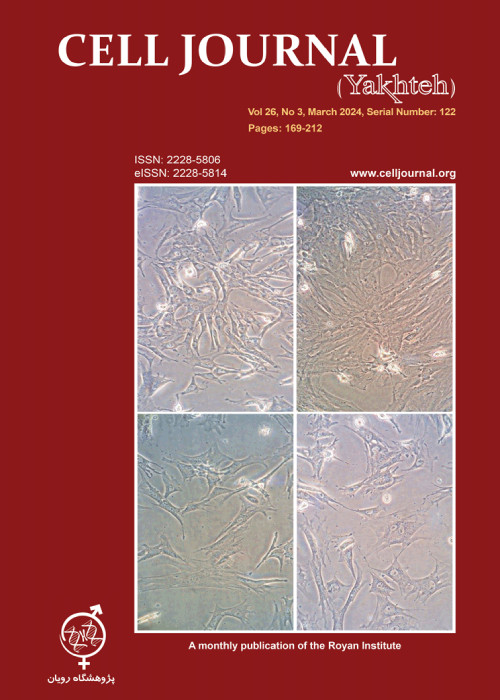Comparative Epigenetic Analysis of Imprinting Genes Involved in Fertility, in Cryopreserved Human Sperms with Rapid Freezing versus Vitrification Methods
Choosing the optimal method for human sperm cryopreservation seems necessary to reduce cryoinjury. The aim of this study is to compare two cryopreservation methods including rapid-freezing and vitrification, in terms of cellular parameters, epigenetic patterns and expression of paternally imprinted genes (PAX8, PEG3 and RTL1) in human sperm which play a role in male fertility.
In this experimental study, semen samples were collected from 20 normozoospermic men. After washing the sperms, cellular parameters were investigated. DNA methylation and expression of genes were investigated using methylation-specific polymerase chain reaction (PCR) and real-time PCR methods, respectively.
The results showed a significant decrease in sperm motility and viability, while a significant increase was observed in DNA fragmentation index of cryopreserved groups in comparison with the fresh group. Moreover, a significant reduction in sperm total motility (TM, P<0.01) and viability (P<0.01) was determined, whereas a significant increase was observed in DNA fragmentation index (P<0.05) of the vitrification group compared to the rapid-freezing group. Our results also showed a significant decrease in expression of PAX8, PEG3 and RTL1 genes in the cryopreserved groups compared to the fresh group. However, expression of PEG3 (P<0.01) and RTL1 (P<0.05) genes were reduced in the vitrification compared to the rapid-freezing group. Moreover, a significant increase in the percentage of PAX8, PEG3 and RTL1 methylation was detected in the rapid-freezing group (P<0.01, P<0.0001 and P<0.001, respectively) and vitrification group (P<0.01, P<0.0001 and P<0.0001, respectively) compared to the fresh group. Additionally, percentage of PEG3 and RTL1 methylation in the vitrification group was significantly increased (P<0.05 and P<0.05, respectively) compared to the rapid-freezing group.
Our findings showed that rapid-freezing is more suitable method for maintaining sperm cell quality. In addition, due to the role of these genes in fertility, changes in their expression and epigenetic modification may affect fertility.
- حق عضویت دریافتی صرف حمایت از نشریات عضو و نگهداری، تکمیل و توسعه مگیران میشود.
- پرداخت حق اشتراک و دانلود مقالات اجازه بازنشر آن در سایر رسانههای چاپی و دیجیتال را به کاربر نمیدهد.


